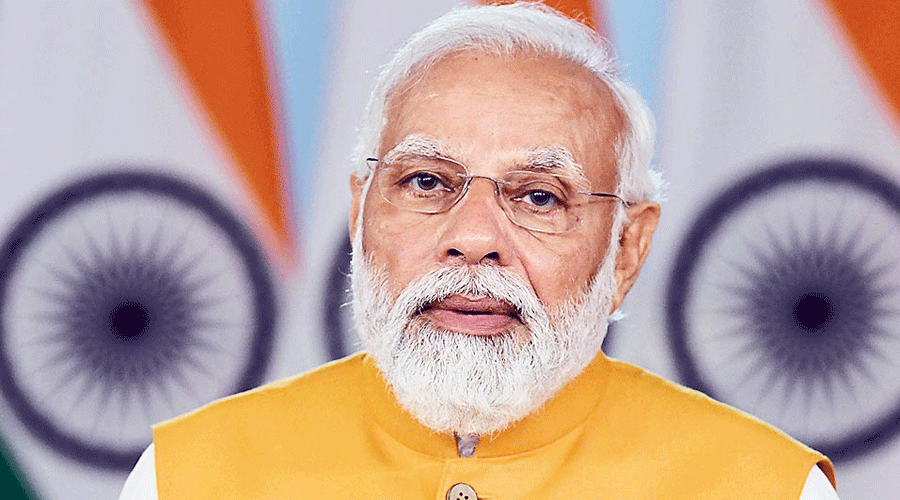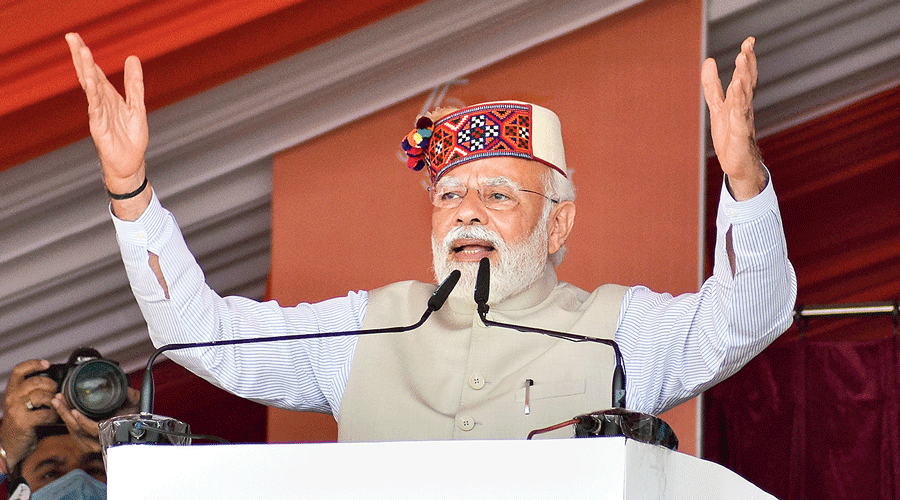The Narendra Modi government has again fumbled with a hot potato in another attempt to regulate social media content.
On Wednesday, the ministry of electronics & information technology (MeitY) published draft rules that proposed the formation of an appeals panel that could veto content takedown on social media platforms — which would possibly make India the first country in the world to bring Facebook, YouTube and Twitter to heel.
Mysteriously, the controversial draft amendment to the Information Technology (Intermediary Liability and Digital Media Ethics Code) Rules, 2021 — simply called the IT Rules — disappeared from the website as a storm started to brew over the highly contentious move.
For quite some time, the Modi government has been seeking to drape a fig leaf over its tyrannical attempts to control social media content by insisting that social media companies cannot throttle Indian users’ constitutional rights to free speech based on their own opaque litmus tests to determine what is acceptable and what is not.
The big beef this time is over the formation of an appeals panel to consider user complaints against the arbitrary takedown of their comments. The draft rules sought to empower the panel to reverse content moderation decisions of the social media firms.
“The intermediary shall respect the rights accorded to citizens under the Constitution,” the draft rules said in a newly added section.
“Every order passed by the grievance appellate committee (on appeals) shall be complied with by the concerned intermediary,” the proposed amendment said.
India ranks among the largest sources worldwide of government requests for content takedowns to Twitter Inc and Meta Platforms Inc.
It is still not clear why the draft rules were suddenly taken down.
Cyber law expert Pavan Duggal said: “It is unclear why the draft has been withdrawn. One of the significant changes is the compliance window given to social media platforms, which has been reduced to 72 hours from the earlier 15 days. However, this too is a long ropeway for them, as the damage to reputation is done with posts being shared and (going) viral.”
Some reports, quoting government sources, said the proposal was withdrawn to fix some “editorial mistakes” and that it could be put back up within a week.
Others speculated that the tone of the new rules might be softened and sandbagged with more legal justifications to make them more palatable to a wider audience.
Either way, the Modi government is showing no signs of backing down on its confrontation with social media companies.
Duggal said: “The grievance committee set-up raises concerns of increased government involvement.”
Government interference with codes of social media conduct has been a casus belli for Internet freedom advocates.
Supreme Court advocate Sanjay Hegde, who has been fighting in Delhi High Court to get his suspension from Twitter revoked, has encored Duggal’s stand.
“My question is: who is the authority? Is the authority independent of the government? If the appellate authority is independent of the government, then that would be something worth looking at. But if this authority is part of the ministry, then it renders all powers to the government. I would not think that is a very good solution. It may be better than the present position, but it is not the correct solution,” Hegde was quoted as saying on Entrackr, a new-age media platform for entrepreneurs, start-ups and technology enthusiasts.
The ministry’s plan stands to increase government control of social media platforms by allowing it to appoint officers to supervise content moderation decisions, said Apar Gupta of the digital advocacy group the Internet Freedom Foundation.
The government has also ratcheted up its opposition to the practice of “de-platforming” users earlier this month.
“De-platforming is a… violation of fundamental rights of users…. (There must be a) force of law behind it for any platform to exercise…. (It) must never ever be done arbitrarily,” MeitY minister of state Rajeev Chandrasekhar said recently on Twitter.
The latest move to amend the IT Rules seeks to codify the position articulated by Chandrasekhar.
The Modi government has had a very prickly relationship with social media platforms.
Last year, government officials said that social media platforms may no longer be eligible to seek liability exemptions as intermediaries or the hosts of user content if they failed to follow domestic information and technology laws.
The statement came soon after police raided Twitter India’s offices in Gurgaon as part of an investigation into why tweets about a so-called toolkit of information about the coronavirus had been labelled as manipulated media and taken down.
Tension had also flared after Twitter refused to take down posts that the government regarded as misinformation about farmer protests last year.
The face-off between the government and social media firms began a lot earlier after they were ordered to store all data relating to posts by Indians in local servers that could be scrutinised by the authorities, effectively seeking to blunt the argument that all social media content was encrypted and protected by the principles that underpinned Internet freedom.


 (@Rajeev_GoI)
(@Rajeev_GoI) 








